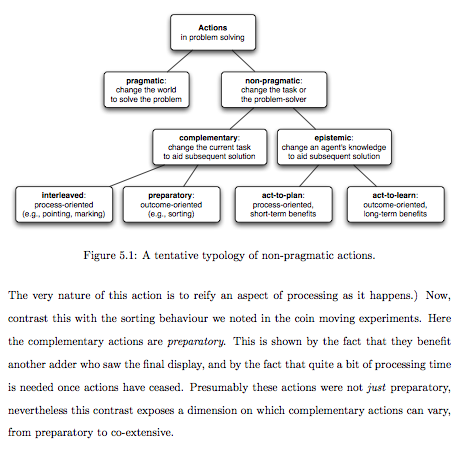Abstract: Taking a lead from existing typologies of actions in the philosophical and cognitive science literatures, we present a novel taxonomy of actions. To promote a notion of epistemic agency we distinguish theoretical (mental state-directed) from practical (world-directed) actions. Our basic structural unit is that of a teleological frame, which spans one specific goal of an agent. Relative to a given teleological frame, actions can be classified as focal (directed towards the end) or ancillary (directed towards a means). The framework is applied to further illuminate previous attempts to distinguish between pragmatic and epistemic actions (Kirsh & Maglio, 1994). Physical actions that substitute or support mental processes are re-classified as practical ancillary actions that are strategically contingent alternatives to theoretical actions.

Keywords: Action theory, basic actions, practical vs. theoretical actions, epistemic agency, embodied cognition, complementary strategies, immediate interactive behavior (IIB).
